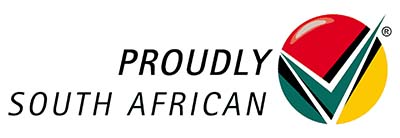Fixed Asset Management is a critical aspect of a company’s financial operations. It involves tracking, maintaining, and accounting for all the long-term assets that a company owns, such as real estate, machinery, vehicles, and equipment.
The regular audits and maintenance of these assets play a vital role in ensuring that the company’s financial records are accurate, and that the assets are in good condition and performing optimally.
What are Fixed Assets?
Fixed assets are tangible or intangible assets that are expected to generate economic benefits for a company over a prolonged period, usually more than one year.
Some examples of fixed assets include buildings, land, machinery, vehicles, and equipment. Fixed assets are a critical component of a company’s overall financial health and play a crucial role in determining the company’s ability to generate future income.
The Importance of Regular Audits in Fixed Asset Management
Regular audits of fixed assets are essential to maintain accurate asset records, detect and prevent fraud, and ensure compliance with regulatory requirements.
Maintaining accurate records of fixed assets is crucial to ensure that a company’s financial statements accurately reflect its financial position. It also helps companies to manage their tax obligations effectively.
Detection and prevention of fraud are other important aspects of regular audits. Regular audits can help identify and prevent fraudulent activities, such as the manipulation of asset records or theft of assets. This helps to maintain the integrity of a company’s financial records and reduce the risk of financial loss.
Finally, compliance with regulatory requirements is another crucial aspect of regular audits. Regular audits help companies follow all relevant accounting and tax regulations, protecting them from potential legal and financial consequences.
The Importance of Maintenance in Fixed Asset Management
Maintenance of fixed assets is crucial in prolonging the life of the assets, ensuring optimal performance, and minimizing downtime and unplanned maintenance costs.
Proper maintenance helps to identify potential problems with assets early on, allowing companies to address them before they become more significant issues. This helps to prolong the life of the assets, reduce the risk of equipment failure, and minimize downtime.
Ensuring the optimal performance of assets is another critical aspect of maintenance. Regular maintenance helps to keep assets functioning at their best, reducing the risk of equipment failure and increasing the overall efficiency of a company’s operations.
Finally, minimizing downtime and unplanned maintenance costs is another critical benefit of regular maintenance. By proactively addressing potential problems with assets, companies can reduce the risk of unplanned maintenance and downtime, which can be costly and disruptive to a company’s operations.
How to Conduct Regular Audits and Maintenance in Fixed Asset Management
Conducting regular audits and maintenance of fixed assets can seem overwhelming, but it is essential to ensure that a company’s assets are in good condition and performing optimally. Companies can follow the following steps to conduct regular audits of fixed assets:
- Develop an audit plan: Determine the scope of the audit, the assets to be audited, and the personnel involved.
- Conduct a physical audit: Conduct a physical inspection of each asset to verify the accuracy of the asset records.
- Compare physical audit results with asset records: Compare the results of the physical audit with the asset records to identify any discrepancies.
- Update asset records: Update the asset records to reflect any changes or discrepancies identified during the audit.
Challenges in Conducting Regular Audits and Maintenance in Fixed Asset Management
Despite the importance of regular audits and maintenance in Fixed Asset Management, companies face several challenges in conducting them effectively. Some of the major challenges include:
- Lack of Expertise and Resources: Companies may not have the expertise and resources necessary to conduct regular audits and maintenance effectively.
- Resistance to Change and Adoption of New Technologies: Companies may be resistant to change and the adoption of new technologies, making it difficult to implement new systems and processes for fixed asset management.
- Integration with existing systems and processes: Companies may struggle to integrate new systems and processes for fixed asset management with their existing systems and processes, leading to inefficiencies and duplicated efforts.
In conclusion, regular audits and maintenance are critical to ensuring that a company’s fixed assets are in good condition and performing optimally.
Properly conducted audits and maintenance help to maintain accurate asset records, detect and prevent fraud, and ensure compliance with regulatory requirements.
Companies should develop and implement a comprehensive strategy for conducting regular audits and maintenance of their fixed assets, despite the challenges they may face. By doing so, companies can ensure the long-term health and success of their operations.








